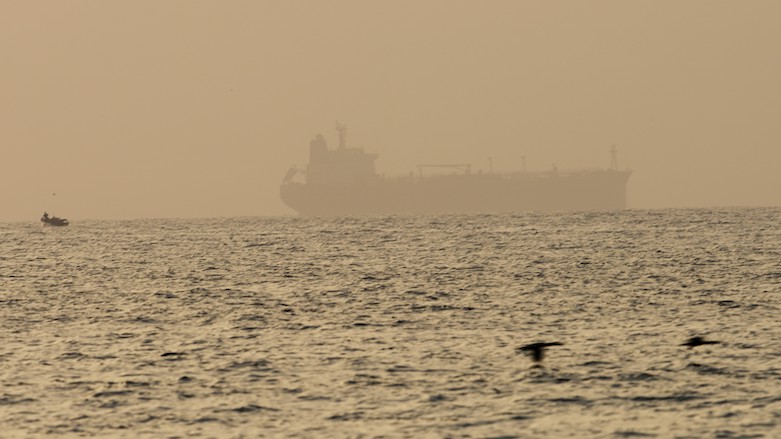Iran reportedly attacks second ship near Gulf of Oman

WASHINGTON, DC (Kurdistan 24) – A second Iranian assault on shipping near the Gulf of Oman was reported on Tuesday. The British press, citing UK government sources, was the first to publish such stories.
However, US spokespersons—at the White House, State Department, and Pentagon—told journalists later on Tuesday that they could not confirm those reports.
“We are aware of the reports of a maritime incident in the Gulf of Oman. We are concerned; we are looking into it,” State Department Spokesperson Ned Price said in response to journalists’ questions.
“We are coordinating with partners,” he continued, “but at this point I just don’t have anything more for you on it.”
The reported hijacking occurred just five days after an Iranian attack on an oil tanker, the Mercer Street, managed by an Israeli-owned company, based in the United Kingdom. The attack on the Liberian-flagged ship killed two crew members: its Romanian captain and a British security guard.
Read More: US, UK join Israel in charging Iran with attacking oil tanker
On Tuesday, The Times of London reported, “A ‘squad’ of eight or nine armed men” appeared to have seized an asphalt tanker off the coast of the United Arab Emirates.
The report cited official British sources. It also quoted the editor of the shipping website, Lloyd’s List, who said that “armed forces have boarded the vessel, which last signaled its position around 5 p.m. London time, and are directing it towards Iran.”
The ship, the Asphalt Princess, was carrying cement. It is registered in Panama and operated by a Dubai-based company, Prime Tankers. In 2019, the company had an incident with Iran. It claimed that Iran had hijacked one of its ships, but Tehran said that it was towing a disabled vessel to port, according to The Maritime Executive, a publishing company focused on issues relevant to the maritime business.
Saudi Arabia’s Foreign Minister told a US think tank on Tuesday “that he sees an emboldened Iran acting in a negative manner in the region, including endangering shipping,” Reuters reported.
Iran denied that any such incident had occurred, denouncing the reports of a hijacking as “suspicious” and claiming they were meant to create a “false atmosphere” against Iran.
Iran also denied responsibility for Thursday’s assault on the oil tanker, although the US, UK, Israel, and Romania have all attributed the attack to Iran.
Somewhat mysteriously, at least five other ships in the area reported they had lost power and were unable to sail at about the same time as the seizure of the Asphalt Princess, according to the Daily Mail. Details remain unclear, but this raises the possibility that some kind of cyberattack accompanied the hijacking.
On Sunday, US Secretary of State Antony Blinken affirmed in a written statement and then in remarks to journalists the next day, “There will be a collective response” to Iran’s attack on the oil tanker.
Indeed, on Tuesday, the UK, Romania, and Liberia all told the UN Security Council it was “highly likely” that Iran had been behind the attack on the Mercer Street.
The Security Council is expected to hold a closed door session later this week to consider their complaint.
Yet even as the US Secretary of State pledged a “collective response” to the first attack, and the Security Council began to take action, it appears that Iran attacked a second ship.
Israel’s Defense Minister Benny Gantz has a different view and, on Monday, called for quick action against Tehran.
“Iran’s aggression in the region generally and on the maritime front, in particular, is intensifying,” Gantz warned.
There are “hundreds of Iranian UAVs [unmanned aerial vehicles] in Iran, Yemen, Iraq and other countries,” he said, noting there had been at least five Iranian attacks on international shipping over the past year.
Now, it seems, there are six.
